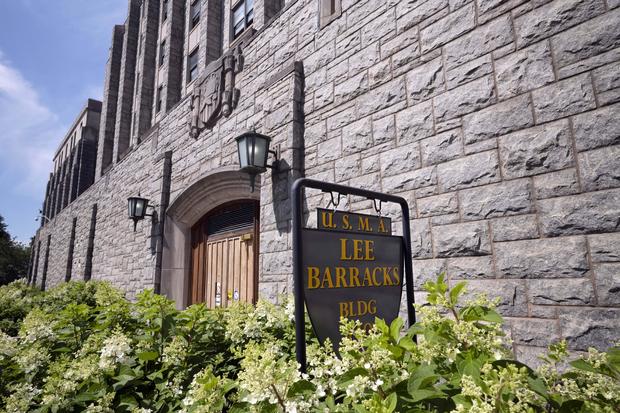The U.S. Military Academy at West Point is starting to remove Confederate statues and symbols from its campus, in compliance with a federal order formally set in motion by the Department of Defense this past October.
Over the holiday break, which began on Dec. 18, the country’s oldest service academy launched what its superintendent described as a “multi-phased process” to either take down or modify displays that memorialize the Confederacy, including an immediate plan to move a portrait of Robert E. Lee wearing a Confederate uniform into storage.
Lee, once a U.S. military general who was ultimately appointed commander of the Confederate army toward the end of the Civil War, was a graduate and superintendent of West Point and lingered as a significant presence on the academy’s New York State campus for more than a century after his death. In addition to the portrait of Lee displayed in Jefferson Hall, West Point also has a stone bust of his likeness, bronze plaques dedicated to him and other Confederate figures, and a gate, road, and series of academic facilities bearing his name.
West Point is removing the portrait, stone bust and bronze triptych over the holiday break, said Lt. General Steven Gilland, the academy’s superintendent, in a statement announcing the changes. In addition to Lee, the bronze triptych includes an image of a hooded figure appearing with the words “Ku Klux Klan.”
Both the portrait and stone bust of Lee will be placed in storage at the academy, according to Gilland, while the bronze triptych would be stored as well “until a more suitable location is determined” for it.
Mark Lennihan / AP
The military academy will also replace a quote from Lee currently displayed in one of the campus plazas with “an appropriate quote about honor” that the school intends to select, with input from the Class of 1957, in the coming weeks, Gilland said. West Point will review a series of stone markers displayed in another campus plaza that commemorate the Confederacy, and “modify those markers with appropriate language and images” starting in the spring.
Gilland additionally noted changes to West Point property bearing Lee’s name, which he said are due to take effect by the end of next year. They include renaming roads as well as multiple buildings and school facilities, like a dormitory and child development center.
“We will conduct these actions with dignity and respect,” Gilland said in the statement. “In the case of those items that were class gifts (specifically, Honor Plaza and Reconciliation Plaza), we will continue to work closely with those classes throughout this process. Any costs associated with the Commission’s recommendations will be resourced within the Department of Defense.”
The push to remove Confederate memorabilia at West Point comes amid wider calls to change or take down commemorative symbols of the Confederacy on government properties across the country.
Specific guidance given to West Point was determined by a federally-mandated panel, called the Naming Commission, that issued recommendations for the removal of Confederate artifacts and renaming of buildings and other campus properties at the end of August. Those recommendations were officially approved by Defense Secretary Lloyd Austin this past October.
Congress created the Naming Commission last year to review, and create recommendations to change, symbols honoring the Confederacy at West Point as well as the U.S. Naval Academy in Annapolis, Maryland. The commission’s August report mainly called for changes at West Point and noted that it was not created “with any intention of ‘erasing history.'”
“The facts of the past remain and the commissioners are confident the history of the Civil War will continue to be taught at all service academies with all the quality and complex detail our national past deserves,” the commission said. “Rather, they make these recommendations to affirm West Point’s long tradition of educating future generations of America’s military leaders to represent the best of our national ideals.”
